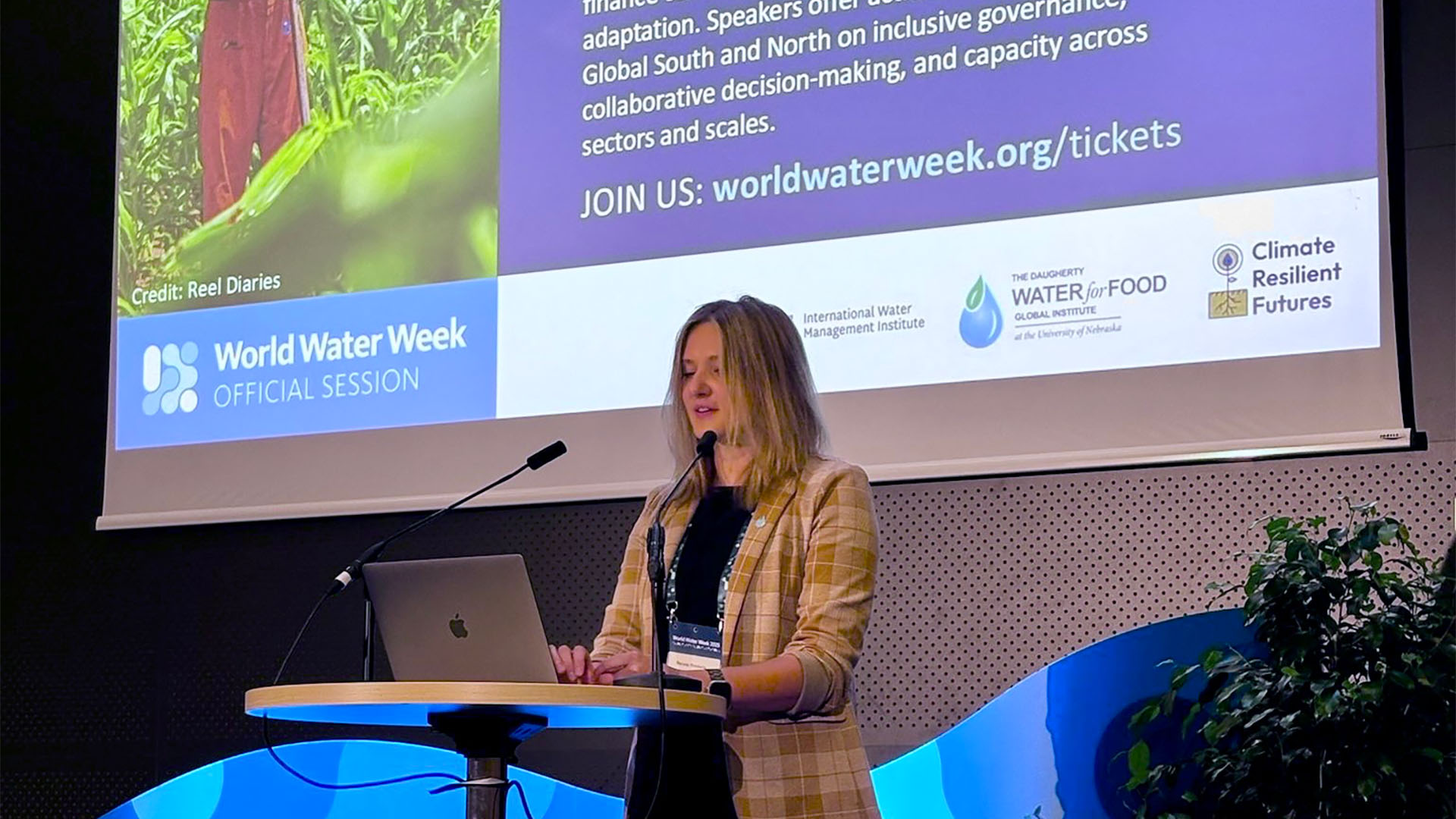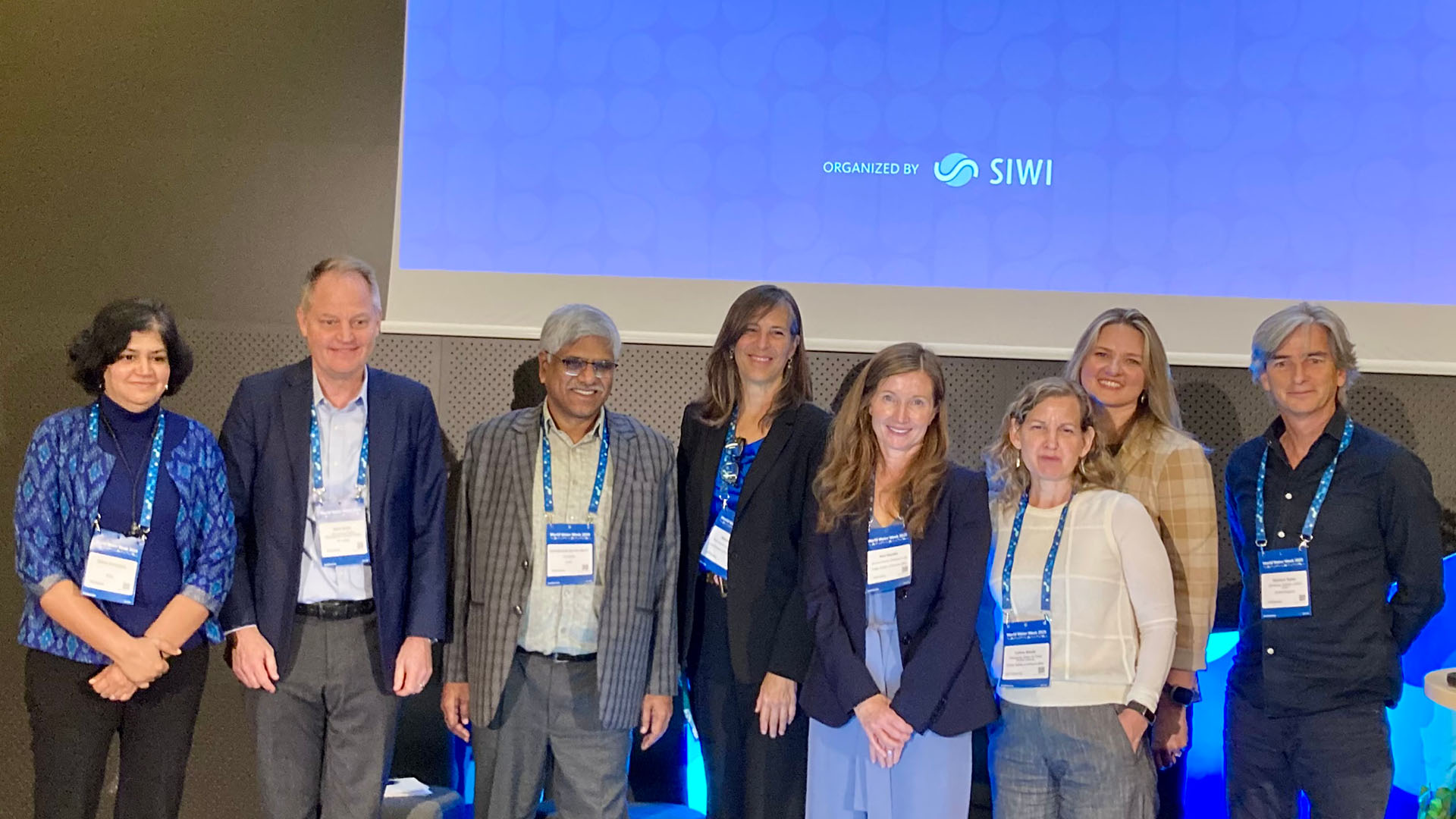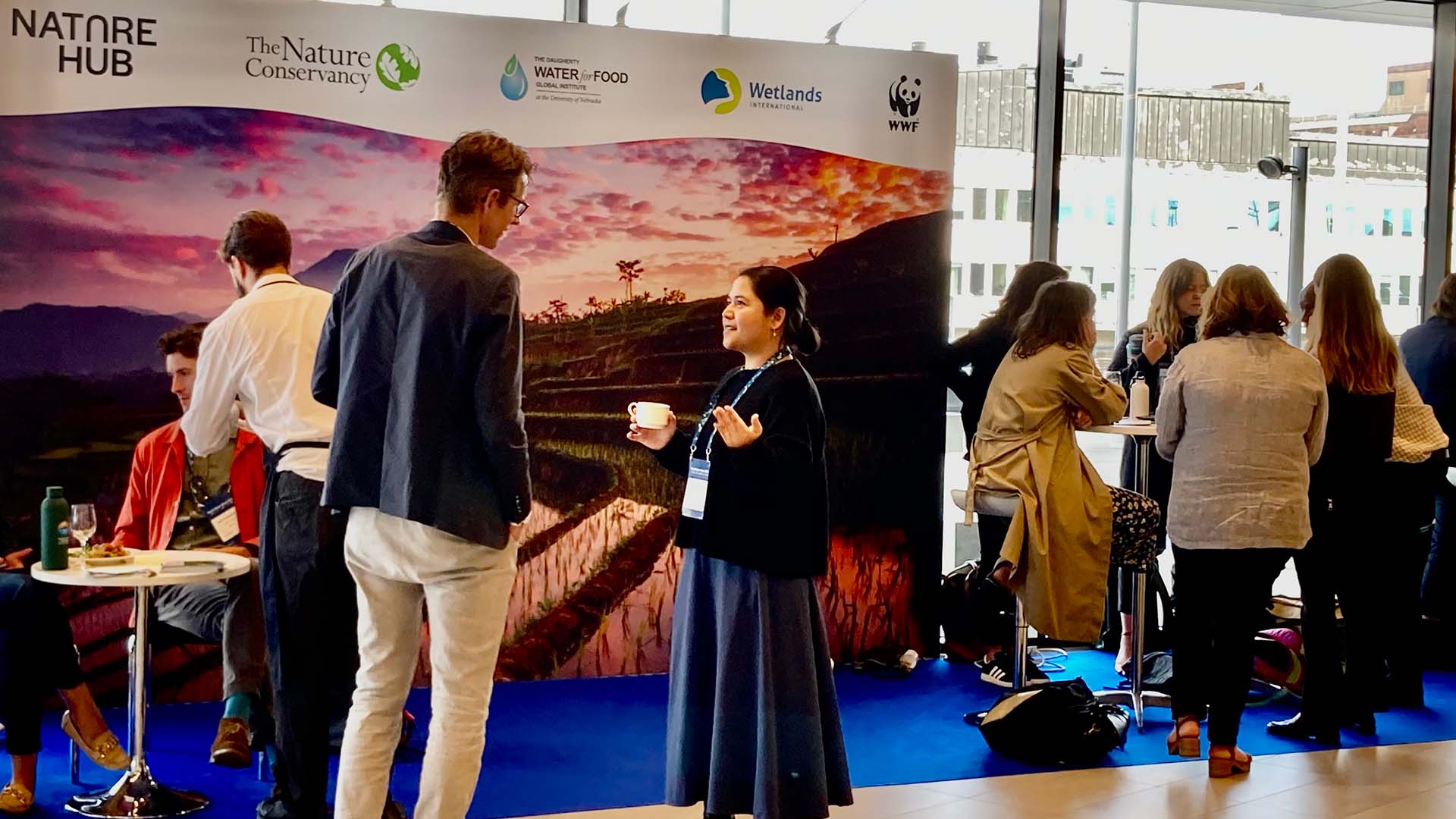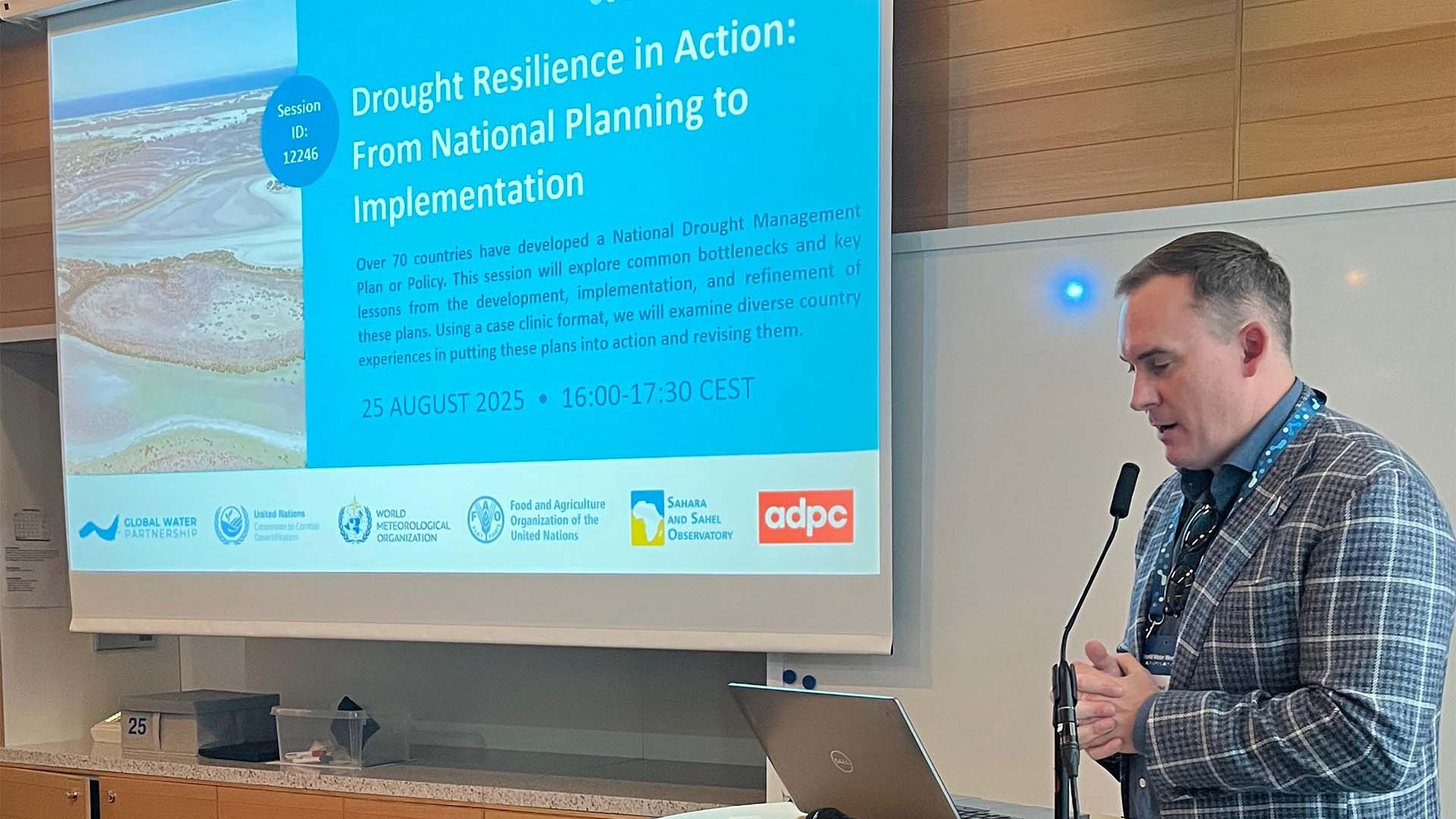DWFI brings agriculture to the conversation at World Water Week 2025
The Daugherty Water for Food Global Institute (DWFI) played an active role in this year’s World Water Week in Stockholm and online, ensuring that agriculture remained central to the global water conversation.
Nicole Lefore, Associate Director of Sustainable Agriculture Water Management, and Renata Rimšaitė, Senior Program Manager, contributed to the SIWI Seminar Series Water for Food in a Changing Climate: Pathways to Adaptation and Mitigation. Their three sessions explored how institutions and policies can support farmers in adapting to climate change, while also aligning agricultural water management with climate mitigation goals. Drawing on examples from both the Global South and North, they highlighted inclusive governance, cross-sector collaboration, and the importance of building capacity at multiple levels.
Jesse Bell, Director of Water, Climate and Health, facilitated a roundtable on drought, addressing the increasing risks communities face as climate variability intensifies. He discussed the many human health impacts of drought events and how nations can prepare to become better resilient in the face of drought.
In addition to these sessions, DWFI met with many partners throughout the week. We were also pleased to meet with the International Water Management Institute (IWMI) and jointly promote our new partnership on the Commission on Water for Food Futures (CWFF).
DWFI was also proud to be part of The Nature Hub, a collaborative space hosted with partners The Nature Conservancy, Wetlands International, Forest Trends, and World Wildlife Fund. The hub offered a bustling venue for showcasing innovative solutions, emphasizing how protecting and restoring rivers, lakes, and wetlands, alongside promoting sustainable agricultural practices, can restore biodiversity, improve water security, and build resilience.
DWFI’s engagement throughout the week reflected our mission to bridge water and agriculture, bringing Nebraska’s experience and expertise into global dialogue. By contributing research and perspectives on irrigation, governance, and climate resilience, DWFI helped emphasize that sustainable food production must remain a core part of water security discussions worldwide.
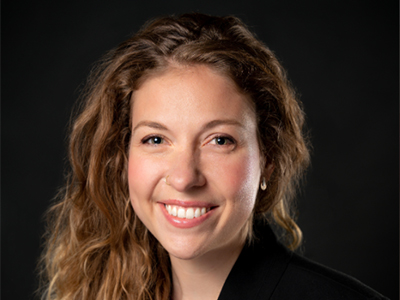
COOKIE USAGE:
The University of Nebraska System uses cookies to give you the best online experience. By clicking "I Agree" and/or continuing to use this website without adjusting your browser settings, you accept the use of cookies.


